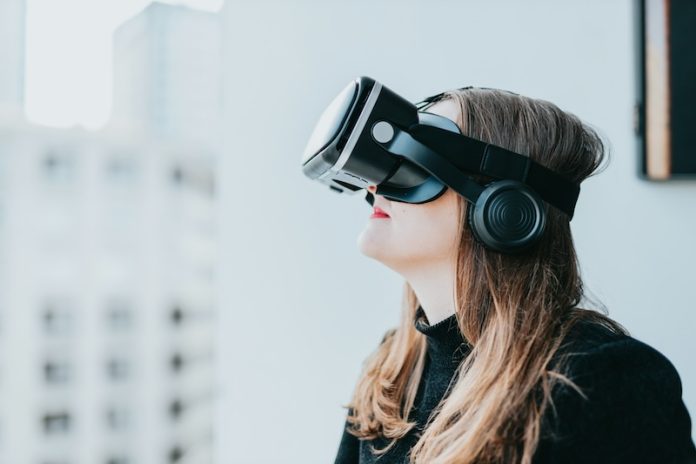
A new study from Texas A&M University suggests that meditation in virtual reality (VR) may be more effective in reducing depression and anxiety symptoms than traditional meditation. The study, published in Frontiers in Psychology, adds to growing evidence that immersive digital experiences can enhance mental health treatments.
Dr. Junhyoung “Paul” Kim, a researcher in the Department of Health Behavior, explained the motivation behind the study. “Medications are the most effective treatments for mental health disorders, but they often come with side effects. That’s why there is a push to explore non-drug treatments, like mindfulness meditation.”
Mental health disorders such as depression and anxiety affect millions of people worldwide. According to the World Health Organization, major depressive disorder is expected to become the most common disease globally by 2030.
People with depression often struggle with feelings of worthlessness, extreme agitation, and even suicidal thoughts. They are also at higher risk of developing other health issues, such as diabetes and cancer.
Anxiety, which brings constant worry and fear, can lead to substance abuse and other behavioral challenges. Both conditions can reduce quality of life by making emotional regulation difficult.
To explore alternative treatment options, researchers tested VR-based meditation on a small group of 25 adults diagnosed with depression and anxiety. The study, conducted in a hospital in Indiana, included 11 men and 14 women with an average age of 42.1 years.
Participants used Meta’s Oculus Quest 2 VR headset for guided meditation sessions. Each session lasted 30 minutes, and participants meditated three times a week for 10 weeks.
They could customize their experience by choosing different virtual environments, such as a beach or meadow, and background sounds like birds chirping or waves crashing. They also selected meditation goals, such as reducing stress or improving sleep.
To measure the effectiveness of VR meditation, researchers used several methods. Before and after each session, participants answered a General Anxiety Disorder-7 questionnaire and underwent electrocardiograms (ECGs) using HeartMath technology.
ECGs helped assess how well their heart rhythms aligned with their nervous system, a key indicator of emotional regulation. They also completed a Patient Health Questionnaire-9 before and after two sessions to track changes in depression levels.
The results confirmed that VR meditation significantly reduced symptoms of anxiety and depression. The electrocardiogram readings also showed improvements in emotional regulation, meaning participants were better able to manage their emotions after the sessions.
Dr. Kim highlighted the importance of these findings, especially for mental health professionals and caregivers. “This research shows that virtual reality meditation could be a valuable tool in treating depression and anxiety. It has the potential to help millions of people in the U.S. who experience these conditions at some point in their lives.”
Analysis of the Study
This study adds to the growing interest in digital therapies for mental health. While traditional meditation is already known to help with stress and emotional balance, VR meditation appears to enhance its effects by making the experience more immersive and engaging.
One advantage of VR-based meditation is that it can provide a calming environment instantly. Many people find it difficult to meditate in noisy or stressful surroundings, but a virtual reality headset can create a distraction-free space, even in a busy household or hospital setting.
The ability to personalize the experience—choosing specific landscapes, sounds, and goals—may also make meditation more enjoyable and effective.
However, there are some limitations to consider. The study involved only 25 participants, a small sample size, and all were receiving medical care, which means results may not apply to everyone. Future studies with larger and more diverse groups would help confirm whether VR meditation is effective for a broader population.
Despite these limitations, this research suggests that VR meditation could become a valuable tool in mental health treatment. It offers a drug-free way to improve emotional regulation, reduce stress, and manage depression and anxiety.
As technology advances, virtual reality may become a more common part of mental health care, making meditation more accessible and effective for those who need it most.
If you care about health, please read studies that scientists find a core feature of depression and this metal in the brain strongly linked to depression.
For more information about health, please see recent studies about drug for mental health that may harm the brain, and results showing this therapy more effective than ketamine in treating severe depression.
The research findings can be found in Frontiers in Psychology.
Copyright © 2025 Knowridge Science Report. All rights reserved.



